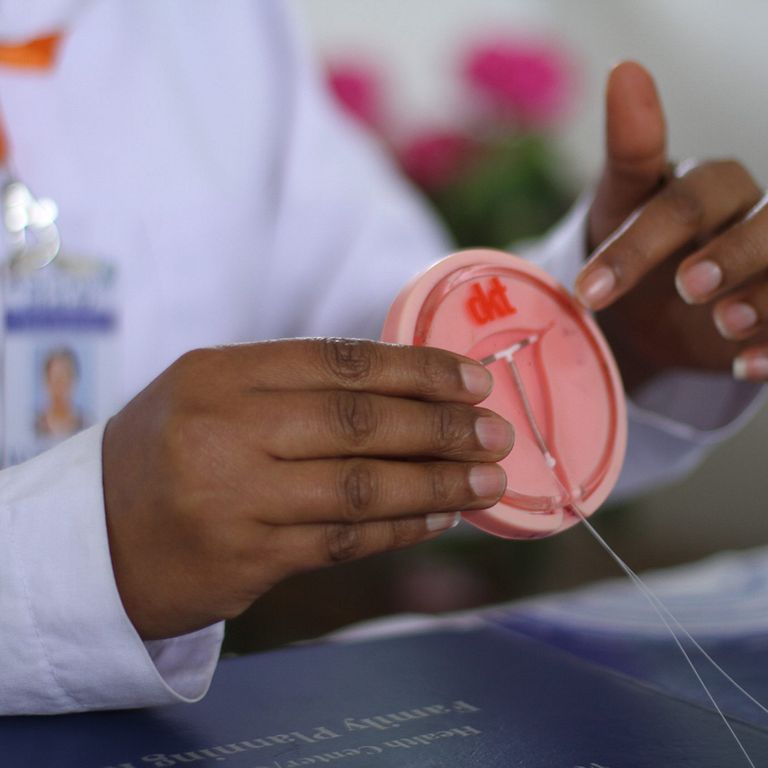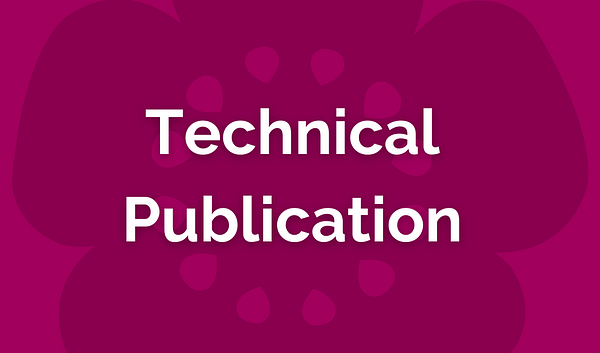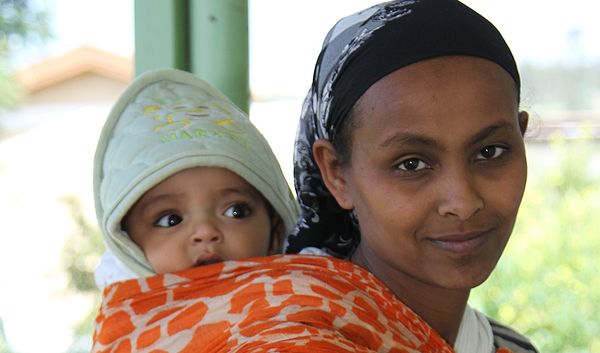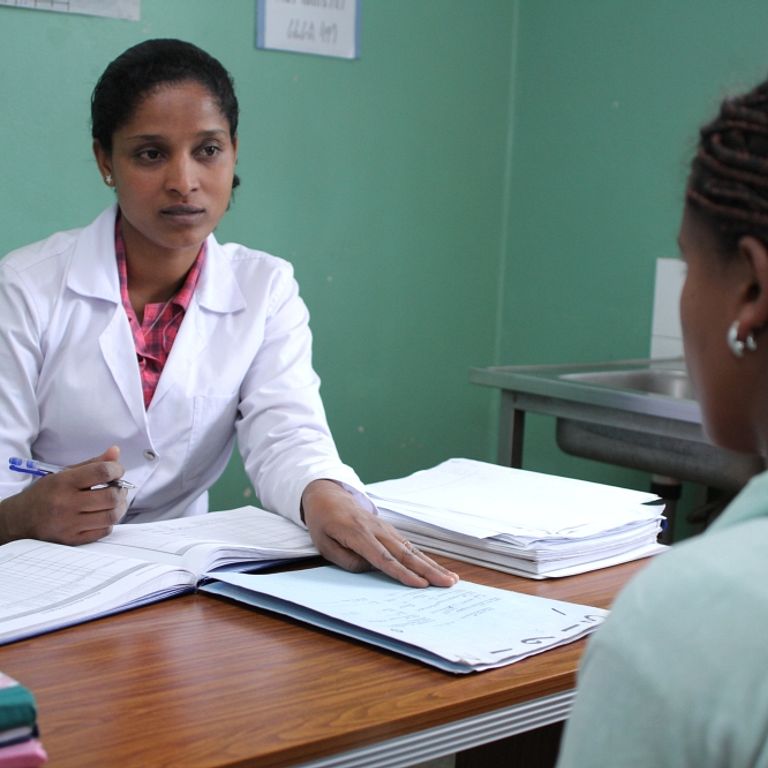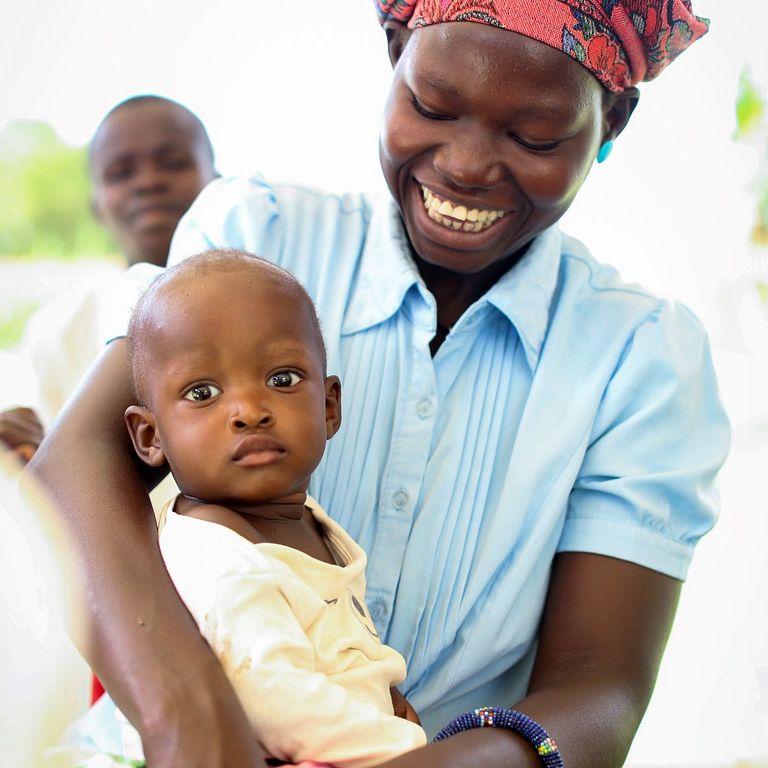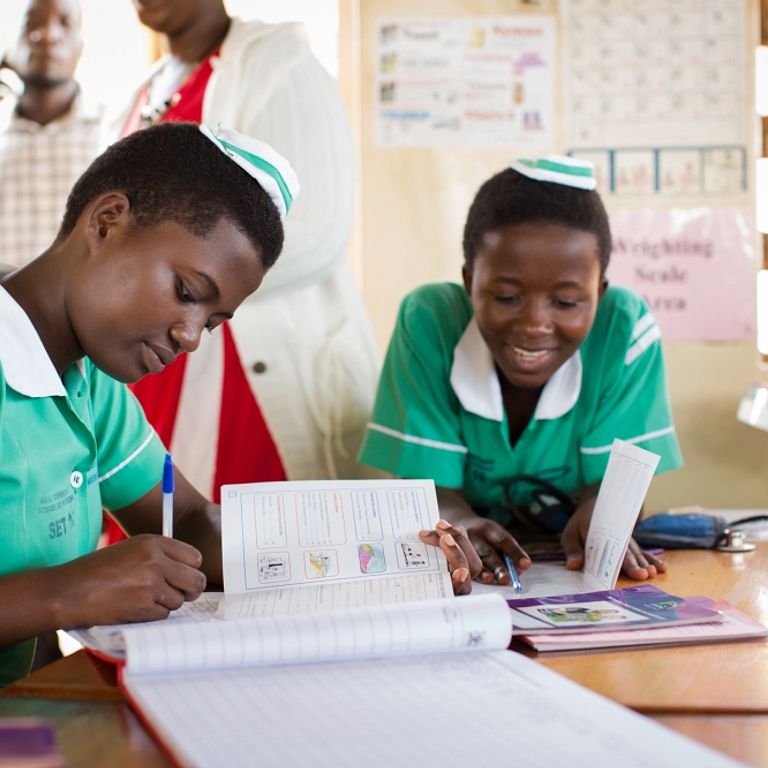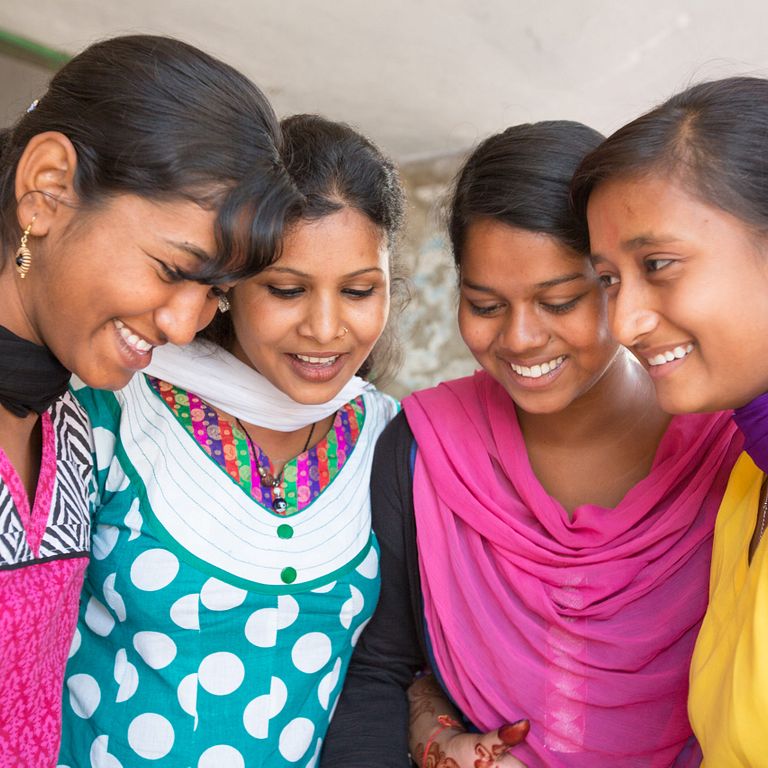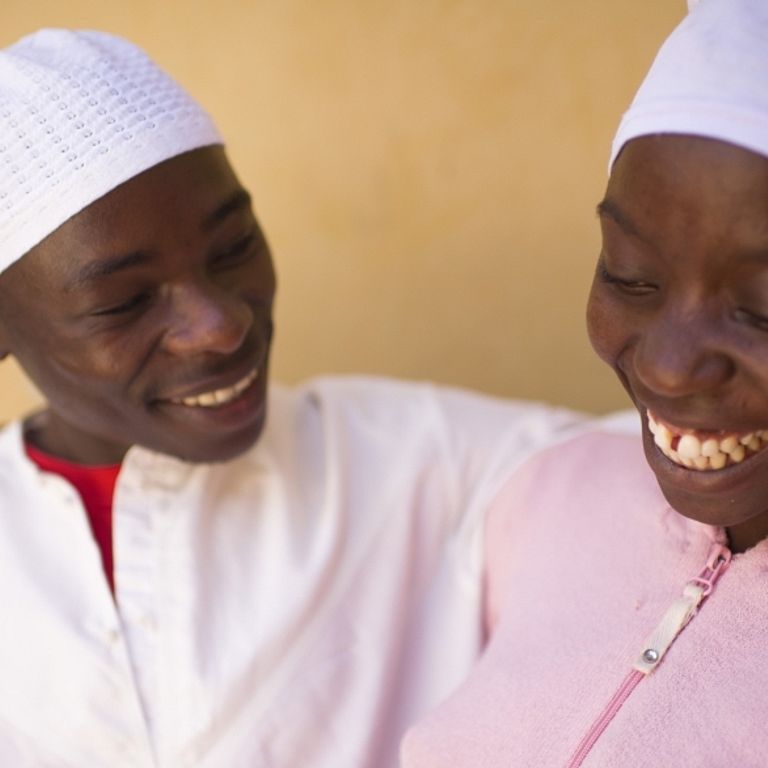Kenya
Kenya sits on Africa’s east coast along the equator. It is Africa’s seventh most populous country, and 38% of its estimated 53 million population is under 15.
According to FP2030, the modern contraceptive prevalence rate for all women ages 15-49 is 45.4%, with 3.1% of women in Kenya selecting the intrauterine device (IUD) as their method of choice. The unmet need for modern contraceptives for all women in Kenya is 14%.


Our Work in Kenya
EngenderHealth began work in Kenya in 1982 and has expanded in response to the country’s evolving needs. Initially, our family planning (FP) programs focused on training doctors in safer, more client-centered surgical sterilization and counseling styles. We went on to work on maternal healthcare, HIV prevention, and child survival initiatives. Today, EngenderHealth’s program in Kenya focuses on increasing access to high-quality family planning, including improving access to and provision of the hormonal intrauterine device (IUD).
In response to the HIV crisis in Kenya, EngenderHealth worked to improve the quality of and access to male circumcision services in Kenya through the Male Circumcision Consortium. Launched by EngenderHealth, Family Health International, and the University of Illinois at Chicago in November 2008, the Consortium worked to expand voluntary medical circumcision services in Kenya as part of an overall strategy to reduce HIV infections in men. In 2009, supported by a grant from the Bill & Melinda Gates Foundation, EngenderHealth, together with Weill Cornell Medical Center and the Kenyan Ministry of Health, completed a pilot study of the Shang Ring, a novel medical device for voluntary medical male circumcision. This efficient and straightforward tool dramatically increases the productivity of large-scale male circumcision efforts by reducing costs to the health system, improving safety, and allowing for use by non-physicians.
Building on work conducted in Nakuru, Kenya, from 2005 to 2007, EngenderHealth’s RESPOND project supported the Ministry of Health in the Naivasha district of the Rift Valley province to expand and enhance access to healthcare and establish sustainable systems for providing services. The RESPOND Project supported the Kenyan Ministry of Health in implementing a national strategy to increase access to and use of long-acting reversible contraceptives (LARCs) and permanent methods of contraception (PMs). The project also emphasized community engagement to improve maternal health and FP, including community-based postabortion care and increased access to long-acting and permanent methods of contraception. Through this project, we trained healthcare professionals in comprehensive postabortion care, equipped health facilities with necessary supplies, and developed materials to educate communities on the availability of health services. Our work included assessing and updating training materials, training trainers of healthcare providers, strengthening collaborative partnerships, conducting national Facilitative Supervision training with an emphasis on FP, and advocating for contraceptive security for LARCs and PMs using Reality √: A Planning and Advocacy Tool for Family Planning Programming.
From 2006 to 2010, EngenderHealth worked to improve comprehensive healthcare in the Nyanza province of Kenya through our APHIA II Nyanza project. We worked with our partners to expand HIV, malaria, and tuberculosis services; increase access to FP; improve reproductive, maternal, and child health; raise awareness and promote healthier behaviors; reduce the stigma associated with HIV; and improve home and community support for vulnerable children.
Additionally, in 2018 EngenderHealth conducted assessments of postabortion care (PAC) in 21 countries, including Kenya, to inform the global evidence base, future policies, and program priorities.
Today, with support from the Clinton Health Access Initiative (CHAI), EngenderHealth’s Kenya Hormonal IUD Rollout and Scale Up Support Project is working to increase the provision of and access to high-quality hormonal IUD services in 275 public health facilities across five counties. To achieve this goal, we are working to strengthen the capacity and standardize the training of national- and country-level trainers in providing hormonal IUD services. To support health facilities, we will assist county-level trainers in conducting courses for 900 healthcare providers and hold quarterly supportive supervision visits. Improving and expanding training will improve access to hormonal IUD services in Nyeri, Meru, Kisumu, Kakamega, and Kisii, broadening contraceptive choices to all clients.
